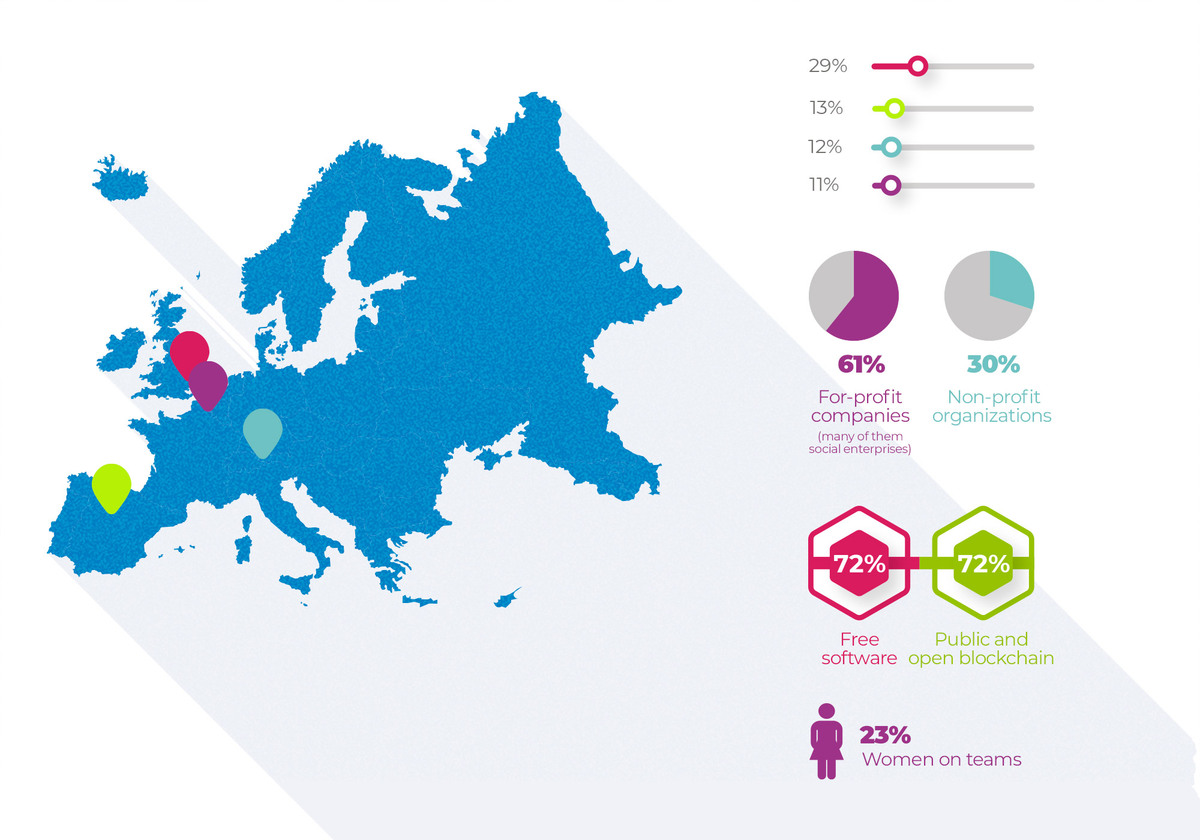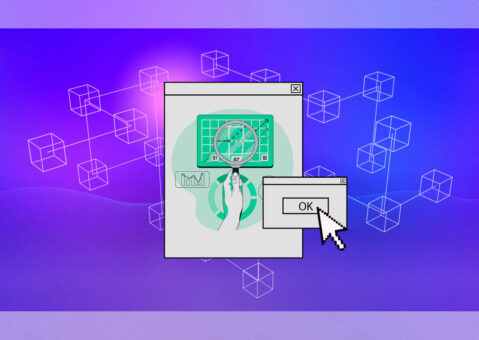First with the 2008 global crisis, and later with Snowden’s revelations in 2013, there have been an increasing number of voices calling for the exploration of alternative models that do not rely on the centralized institutions that are failing us.
Too-big-to-fail banks, monopolistic internet companies or invasive states leverage their centralized power, often against people and communities. In the last decade, we have been hearing more and more about the potential of emerging decentralized technologies that may help to promote different models and ecosystems. And of course, blockchain has been at the center of many of these debates, with idealists claiming it will revolutionize the world, and critics claiming it has no practical application. Beyond the hype, it is clear the promises of blockchain are not being realized as quickly as initially expected – especially given the billions of dollars invested in its development. What, then, is the state of the field today? Which practical applications are working with up-and-running pilots or services? And especially, is blockchain creating social impact in other fields beyond finance?
The European Union, and in particular its Joint Research Center , aware of the potential of blockchain – and DLTs in general – for the social and public good, has launched an investigation that “explores the current status of this particular field both theoretically and empirically”. The P2P Models team that I lead, has participated in this EU report with an important role, carrying out an exhaustive mapping of the “DLT for good” field together with a statistical analysis and in-depth interviews.
In total, we have gathered 131 projects with 25 data points for each. The selection criteria excluded vaporware and toy prototypes, focusing on projects running pilots with real users or fully deployed services. We mapped European projects that aim to contribute to the social and public good using DLT/blockchain technologies. The diversity of projects is astonishing, with topics including renewable energies, the management of public and common goods, intellectual property rights, the fight against fake news and gender equity.
“
The diversity of projects is astonishing, with topics including renewable energies, the management of public and common goods, intellectual property rights, the fight against fake news and gender equity.
Qualitative research. Insights
Our qualitative research, as shown in the report, provides interesting insights into these kinds of projects. In general, they are critical of how the current Internet works: a series of highly centralized agents (e.g. Google, Facebook) extract value from their users without appropriate recognition or payment. Thus, some of these projects are taking it upon themselves to help build a truly decentralized Internet using DLT to fight against the co-optation carried out by these large corporations.
Overall, these projects do not rely on grants or other public funding tools. Nevertheless, they welcome and encourage support from public bodies. The different agents interviewed stress that the main roles of the European Commission should be (1) to create a positive context for adoption, (2) to create spaces for interconnection and dissemination among projects, professionals and the wider public, and (3) to provide a legal framework that enables these initiatives to flourish safely. It is also critical for them to show that not all DLT is about finance and speculation.
Statistical analysis. Trends

From the statistical analysis performed, we can observe a few clear trends in the field:
- The main European countries with blockchain projects for the common good are the United Kingdom (29%), Spain (13%), the Netherlands (12%), Germany (11%) and Switzerland (11%). Spain is therefore one of the leading European countries in this field.
- Most of the projects (61%) belong to a for-profit company, many of them social enterprises, although there are also a significant number of non-profit organizations in the field (30%). This contradicts the idea that most innovative ventures are always carried out by for-profit start-ups.
- Most of the projects (72%) release their code as free software and most (72%) use a public and open blockchain.
- Although the teams are mostly male, 88% include women, who account for 26% of the total team membership. However, in line with other studies, the number of women in leadership positions is minimal.
Policy proposals
The report also includes policy proposals from various experts in the field. My policy recommendations for the European Union regarding this field are the following:
- Investing in the research and construction of free/open-source decentralized technical infrastructure. There are multiple technical and social challenges with respect to developing decentralized technology, and today there is a window of opportunity for Europe to boost the field and strengthen their position in it.
- Strengthening EU hubs on decentralized technology, including not-just-for-profit, open and diverse projects. This should be done by focusing not only on for-profit entrepreneurship, but also on non-profit entrepreneurship, which, as the data shows, has a strong presence in the EU. In fact, this has been the case in the free/open-source software world for decades in the USA (e.g. Mozilla Foundation, Apache Foundation, Free Software Foundation). In the same line, strengthening the existing trends on openness and diversity will give a clear advantage to teams aligned with European values in the international arena.
- Promoting Platform Co-ops as emerging governance and business models. There is an opportunity to support emerging business and governance models in line with decentralized technology.
Conclusion
We hope European institutions will support blockchain and other decentralized technologies so that they may contribute their transformative potential towards social justice. In the meanwhile, we are continuing to work with this vision in the P2P Models project, letting our work be guided by this technology so that it may foster collaboration, the commons, and social justice in general. We try to recognize the socio-political potential of the technology we use, without falling in techno-determinist visions. Therefore, when we work with communities we focus on co-designing with them, so that they are the ones leading the technology, rather than the other way around.
AUTHOR

The authorship is by Samer Hassan, but this content has been made thanks to the whole P2P Models team ![]()
The designs are by Elena Martinez
The review by Genoveva López and Guerrilla Translation
Rosa Chamorro makes everything possible





